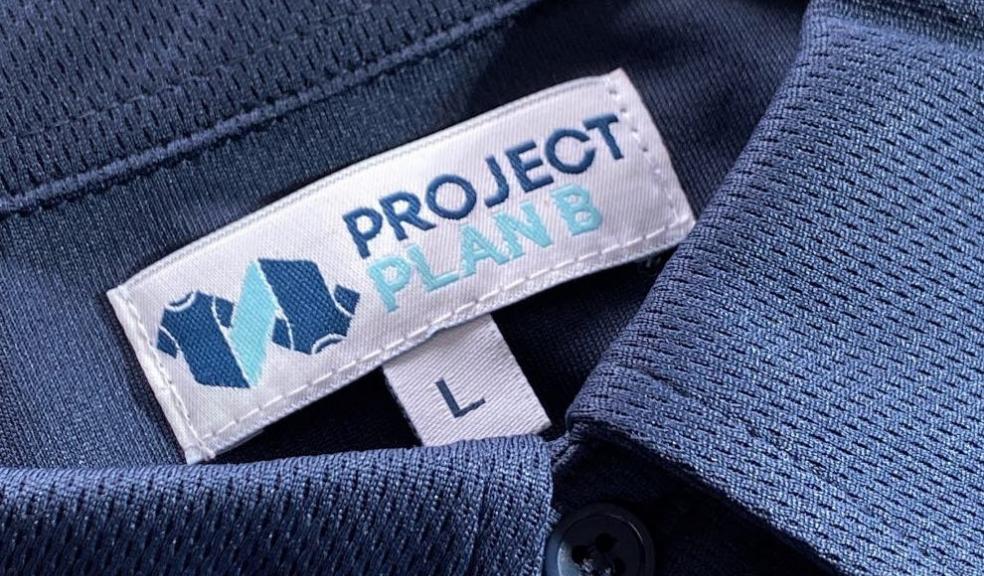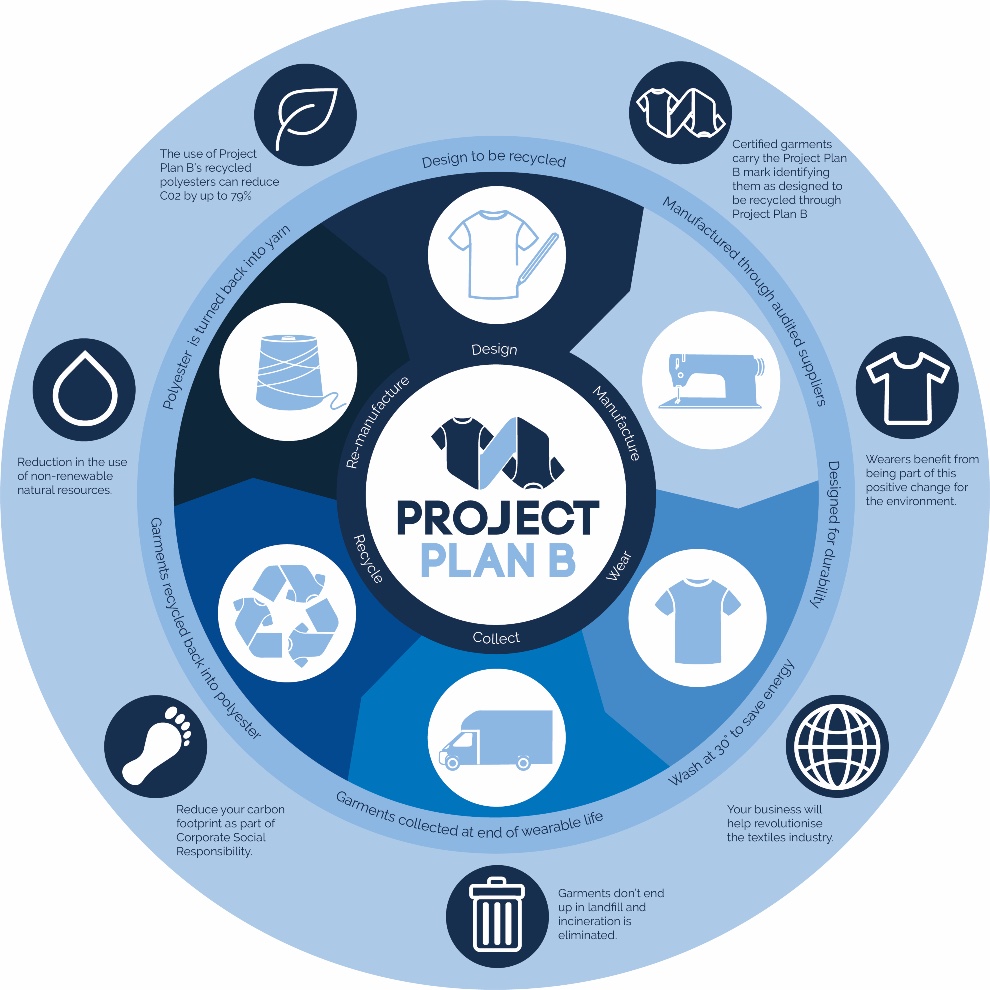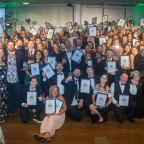
Protect others, protect the planet and consider C19
Plymouth based Project Plan B Director Tim Cross has long been a spokesperson on sustainable textiles solutions for the workwear and PPE markets – but C19 has amplified that passion. He is urging designers and product developers to think about products’ end of working life – with the motto ‘protect others, protect the planet.’
“Nearly 90% of UK workwear already ends up in landfill or incinerated every year [1]– C19 has exacerbated that problem.” Tim explains.
“Disposable PPE is adding to the industry wide problem of mass manufacture and waste, which is why we created the first fully recyclable face mask, made from recycled plastic currently being marketed by 1TCA. We completely understand that during a time of crisis we have to act quickly to protect lives. However, it is surely incumbent upon us as designers and product developers to think about the products’ end of working life.
“We believe every industry has the potential to reduce their impact on the environment – the same environment issues of waste, resources, CO2 emissions and climate change remain, and are being intensified by the global pandemic. We want to be the catalyst for positive change in the textile industry and hope that other companies will follow to provide 100% recycled ranges. Everyone has the potential to make positive change, and we are keen to share what we have learnt to help others achieve the same.
“We will keep pushing boundaries, innovating and sharing knowledge to achieve the positive change we believe the textile industry is capable of.”
The issue of sustainability is widespread and complex, garnering attention across the textile industry due to the substantial amount of water-waste and produce dumped in landfills. All businesses, textile-centered or otherwise, are having to consider their practices in sustainability.
The Project Plan B journey started by providing a manufacturing solution to less flexible, larger corporations; pulling together resources and expertise from across the globe to deliver bespoke garments. They started by looking at using recycled fabrics, but quickly realised that this was not going to be enough if the garment just ends up in landfill after use.
The project needed to address not only the use of non-renewable resources in producing fabric, but the longevity of garment life, and the disposal at end of life. They needed a circular solution, which can be summarised as:
- All Project Plan B garments are made from 100% recycled materials
- Every garment is designed to be recycled
- Each garment can be 100% recycled by Project Plan B
The company works with long standing partners that have included London Olympics, Eon, Eddie Stobart, Police and Ambulance, Qatar World Cup 2022 construction workers, Arco, JCB workwear; and earlier this year won the uniform re-design contract for Stansted Airport. These partnerships are built on regular visits, audits and working together daily to achieve joint goals and aims; working in line with the Ethical Trading Initiative Basecode and members of Sedex.
Having researched possible recycling options for end of life, they realised the importance of keeping value in the chain. If value is constantly downcycled, it is less economical for businesses and more likely to end up as waste at some point down the line.
Project Plan B began working with fabric mills to develop a recycled yarn that could be recycled again without a loss in value. They then ensured that this yarn would have all the properties required for commercial success; a super soft hand feel, wicking capabilities and the ability to take an anti-bacterial treatment. It was imperative to set about designing garments to be recycled. Designing with the end of life in mind from the beginning allows problems to be solved before they are created.
Drawing on their research and resources, Project Plan B created solutions which led to the first samples of 100% recycled polyester polo shirts. Each garment carries the Project Plan B mark identifying them as designed to be recycled using their quality recycled threads. These garments can then be recycled back into a high-grade raw material suitable for carding, spinning and knitting or weaving into the fabric of new garments.
In this way, Project Plan B created a unique closed loop circular system through which materials can be used again and again whilst maintaining purity and value.
Tim concludes: “At Project Plan B we believe you must design everything to be recycled at end of life so that you can use those fabrics, so rich in resources again and again. At this challenging time and ongoing, the textile world needs to think in a circular way and build in sustainability to their design.
“The global economy is not a force of nature – it is made of a million decisions. It is designed. And it can be redesigned”.[2]
PCIAW® CEO and founder, Yvette Ashby added: “PCIAW® is the first and only worldwide organization developed to represent the global companies of the professional clothing industry, we encompass the entire supply chain from buyers, suppliers, manufacturers. As members of PCIAW®, we are assisting Project Plan B however we can, to bring products to market. In the time of this pandemic, innovation in PPE (personal protective equipment) is more vital than ever and we hope other companies will follow Project Plan B’s lead in their affordable, sustainable product offering.”

[1] Wrap Review of Corporatewear arisings and opportunities 2012
[2] Ellen MacArthur Foundation Tweet, 03.12.19
About Project Plan B
Project Plan B is a commitment to tackling global environmental challenges faced by the textile industry. They believe that by redesigning the way they do things right from the beginning, they can significantly reduce their impact while delivering excellent, high quality performance clothing. www.projectplanb.co.uk
By adapting from a linear to circular manufacturing system, they can eradicate the need for virgin polyester to be used or disposed of in their designed to be recycled closed loop system. Every fabric, trim, accessory, thread and label are carefully selected to ensure a high standard of recycled material suitable for reuse. This keeps the level of purity high so that value is kept within the cycle. Each garment is made from recycled polyester, and at the end of wearable life every Project Plan B garment will be turned back into raw polyester before being spun into the fabric of new garments; closing the loop to create a circular polyester cycle.














